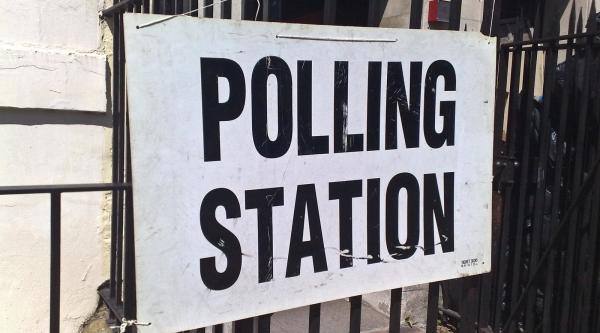Help with housing costs if you’re affected by dementia
People affected by dementia who receive benefits may also be eligible for help with housing costs, such as housing benefit, SMI and support with council tax.
What support is available for people affected by dementia who need help with housing costs?
You may qualify for help with your housing costs, including Council tax, if you are on a low income or receiving certain benefits. This support includes:
- Support for mortgage interest (SMI)
- Housing benefit or the housing costs element of Universal credit
- Help with Council tax.
Click on the plus icon below to see the current rates.
What is Support for mortgage interest (SMI)?
If you are a homeowner you may get help paying some of your mortgage interest, if you are entitled to any of these benefits:
- Income support
- income-related ESA
- income-based Jobseeker’s allowance
- Pension credit
- Universal credit.
Can I claim SMI?
This will depend on the circumstances of the people living in your home.
SMI will only be given as a loan, which must be repaid. There is a 39-week wait for payment from the time you claim, unless you are over pension age – if you are, you can receive help immediately.
The DWP will charge interest on the SMI loan, meaning you will pay back more than you borrowed. Seek advice to compare your options.
What is Housing benefit?
Housing benefit helps people to pay for rent. It is assessed and paid for by local authorities.
Housing benefit does not depend on National insurance contributions and is tax-free. The amount of benefit paid will normally depend on the person’s income and savings, and the rent being charged. You may not be eligible for Housing benefit if you have savings over a set amount.
The housing costs element of Universal credit is designed to help with rent and is very similar to Housing benefit.
Housing benefit and Universal credit do not cover Council tax. Help with Council tax has to be claimed separately from the council.
Can I claim Housing benefit?
You can no longer make a new claim for Housing benefit unless you have reached State pension age or are living in supported, sheltered or temporary housing.
If you can apply for Housing benefit, you can do this at the same time as claiming Income support, income-based Jobseeker’s allowance, income-related ESA or Pension credit. The application packs for these benefits often also include an application form for Housing benefit. If you are not applying for another benefit you can ask the local authority for an application form.
If you can’t apply for Housing benefit you may be able to claim Universal credit instead.
If you are already receiving Housing benefit and are living in the same local authority area, then you should be able to complete a change of circumstances form and don’t need to make a Universal credit claim.
Is there a limit on Housing benefit?
People renting from a private landlord usually have their Housing benefit limited to what is known as the local housing allowance rate. This rate can be found on your local authority’s website or you can look it up.
Housing benefit and Universal credit are also ‘capped’ (limited) for working-age tenants under the Benefit cap. Benefits should not be capped for people receiving DLA or PIP or Carer’s allowance, or for people who are in the ESA support group.
If you live with a partner, only one of you should apply for Housing benefit. However, your income and savings will be considered jointly and other adults living with you will affect the amount of Housing benefit you can receive.
If you or your partner get AA or PIP (daily living) or DLA (care component), any non-dependents who live with you are not required to contribute to your housing costs.
Limits on Housing benefit also apply to people of working age living in social housing. There is an ‘under-occupancy penalty’ (often known as the ‘bedroom tax’).
If it is considered that you have too many bedrooms based on the number of people living there, the amount of your rent eligible for Housing benefit will be cut by:
- 14% (for one bedroom too many), or
- 25% (for two or more bedrooms too many).
In some cases a room for a carer, or for equipment needed due to someone’s disability, can be counted as a requirement for an extra bedroom. An exception can also be made where a couple or children can’t share a room due to their disabilities.
If you are affected by the ‘under-occupancy penalty’ you may be able to claim a Discretionary housing payment from your local authority.
What is Council tax support?
Council tax is set by local councils to pay for the services they provide. The amount of Council tax support available depends on your income and savings, and the amount of Council tax due. If you are under pension age you may be asked to pay a contribution to Council tax even if you are on a low income.
Am I entitled to Council tax support?
Some people with dementia may be eligible for help with their Council tax regardless of their income or age. They would need to be considered by their doctor to have ‘severe mental impairment’ and be receiving a qualifying benefit.
Find out about Council tax support and reductions available for people affected by dementia.
- Page last reviewed:








You can no longer make a new claim for Housing benefit unless:
If you don’t fall into these categories and need help with your housing costs, you should claim Universal credit instead.
Capital limits
You won’t be able to claim Housing benefit if you have capital (savings and other assets) over £16,000. The value of the home you live in isn’t counted as capital).
There is no upper capital limit if you are receiving Guarantee pension credit.
Benefit cap
You may find your Housing benefit reduced if your total benefits income is more than the maximum allowed under the benefit cap.
Whether the benefit cap applies to you will depend upon who lives in your household and which benefits are being paid. Some people will be exempt from the cap. This includes people over State pension age and people receiving Attendance allowance, Personal independence payment or Disability Living living allowance.
The benefit cap amount depends on where you live in the country: